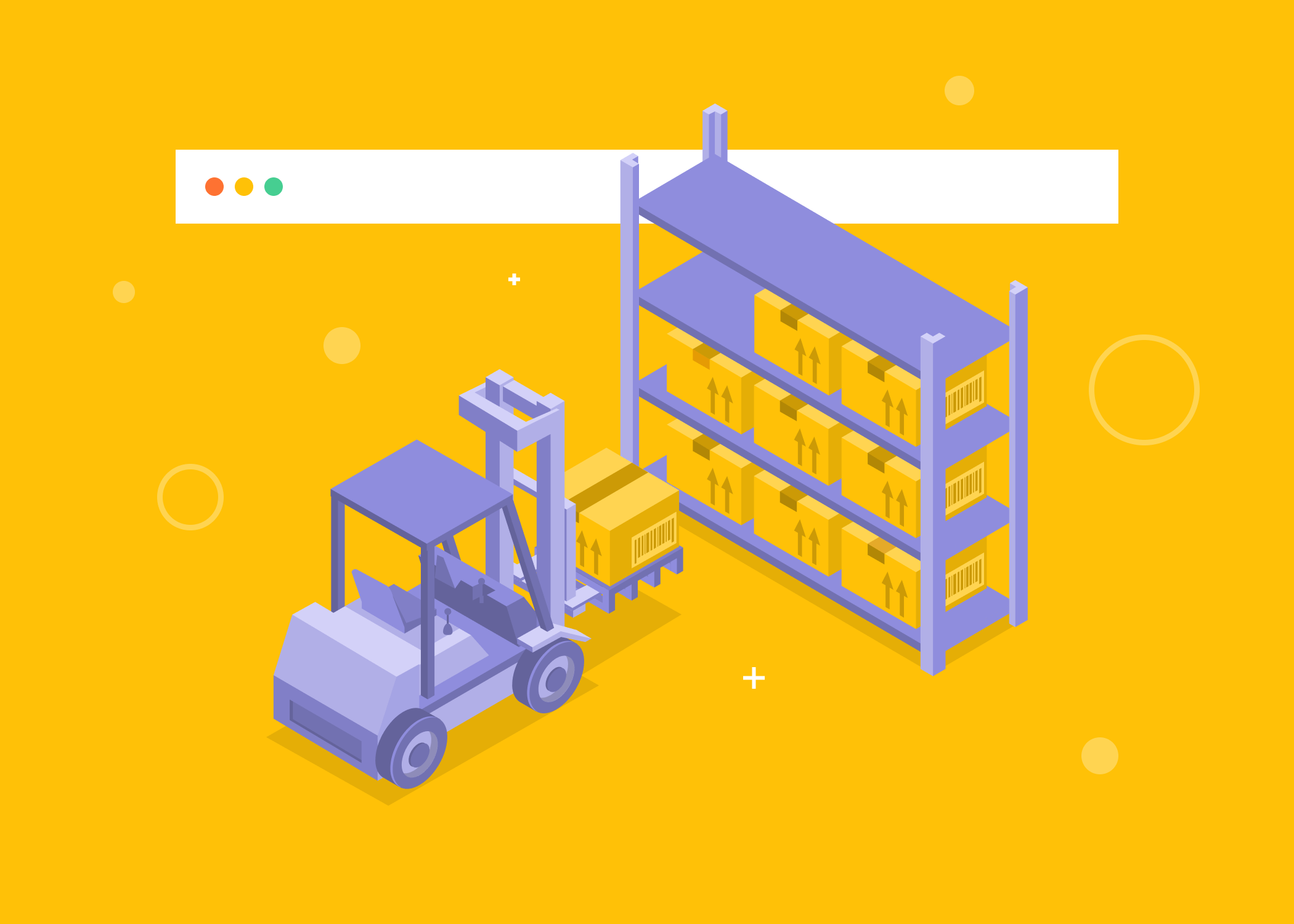Online merchants receive many benefits from selling products on the Internet. For instance, they can sell items 24/7 and reach a larger target audience compared to physical shops.
However, there are several options for selling online. Some retailers develop their own e-commerce websites, while others use online marketplaces. If you are in doubt whether to choose marketplace vs. e-commerce website for your business, this article will help you to make the right decision.
Below we have gathered the pros and cons of selling items via the trading platform and own online store.
Difference between an online shop and two-sided marketplace
If you are ready to enter the e-commerce market with your products, there are many options from which to choose. You can start selling in the existing marketplace, or you could invest in personal online store development. Continue reading to learn the difference between these options.
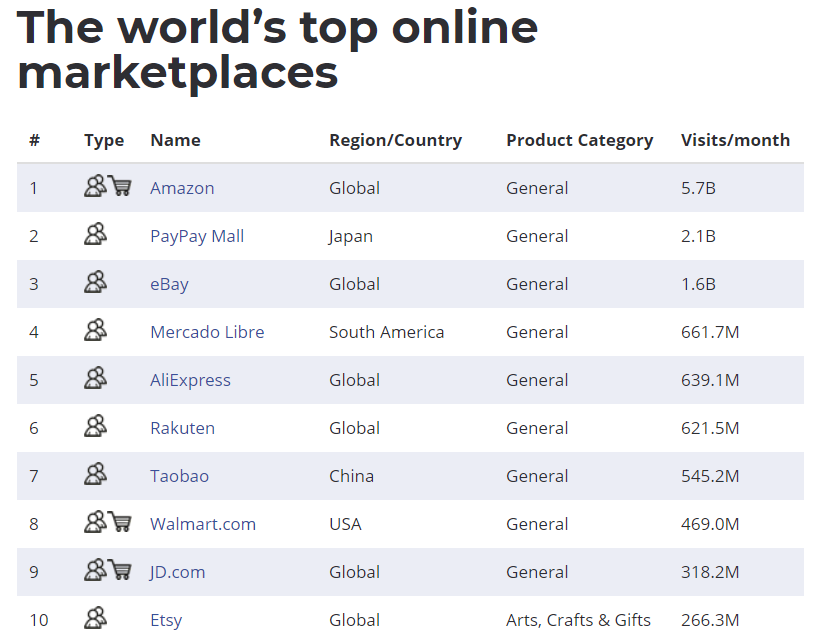
Image source: Webretailer
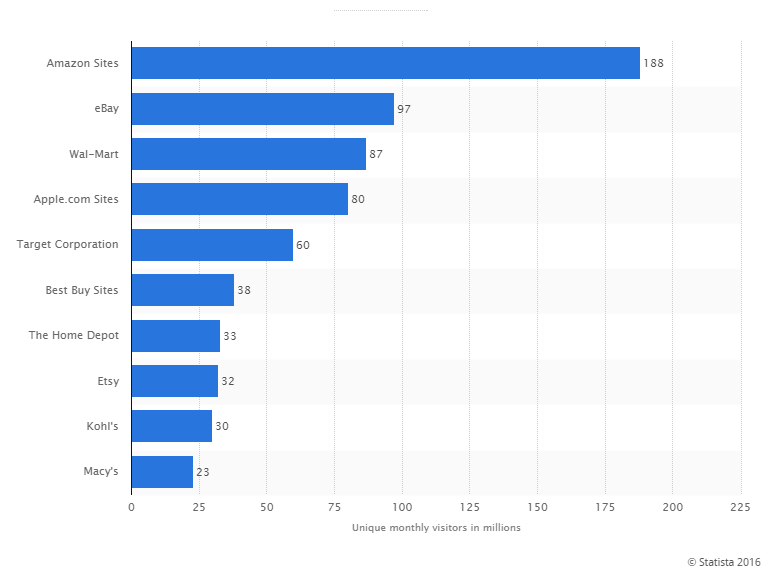
Image source: Orderhive
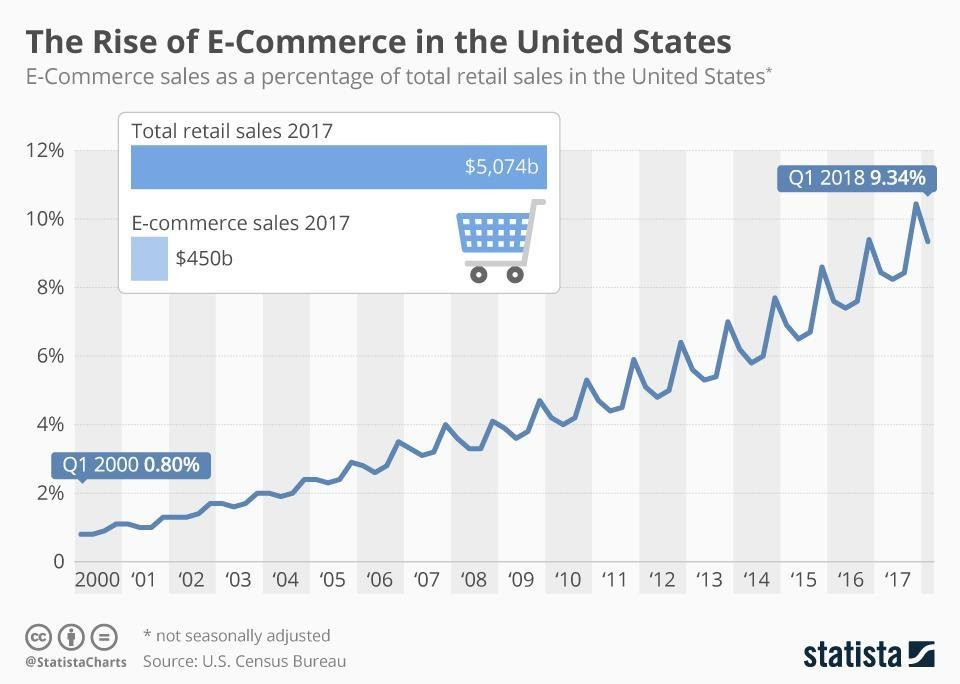
Image source: Statista
An online marketplace means that the website includes numerous retailers and shoppers. The most popular markets in the U. S. are eBay, Amazon, Walmart, and Etsy. You can create the seller account and start selling your products immediately.
Retail e-commerce sales in the United States

Image source: Statista
Owning an e-commerce website means that online shop belongs to your particular business or brand. You can develop such a site using SaaS or open source e-commerce platform. It also gives you an opportunity to conduct marketing campaigns and build customer loyalty.
Still, it could be hard to choose between these two ways of selling online. Why? Because building your online shop requires significant investments, while you can make sales on the marketplace for free. However, there is a high level of competition on the marketplaces among sellers. Also, they do not provide the same opportunities for branding and personalization as e-commerce websites do.
To choose the best option, let us take a look at the pros and cons of owning an online store and selling products on the marketplace.
Marketplace advantages
Marketplaces, Amazon, in particular, are very popular among online merchants and shoppers. To be precise, sales on Amazon reached $3.03 billion in 2017.
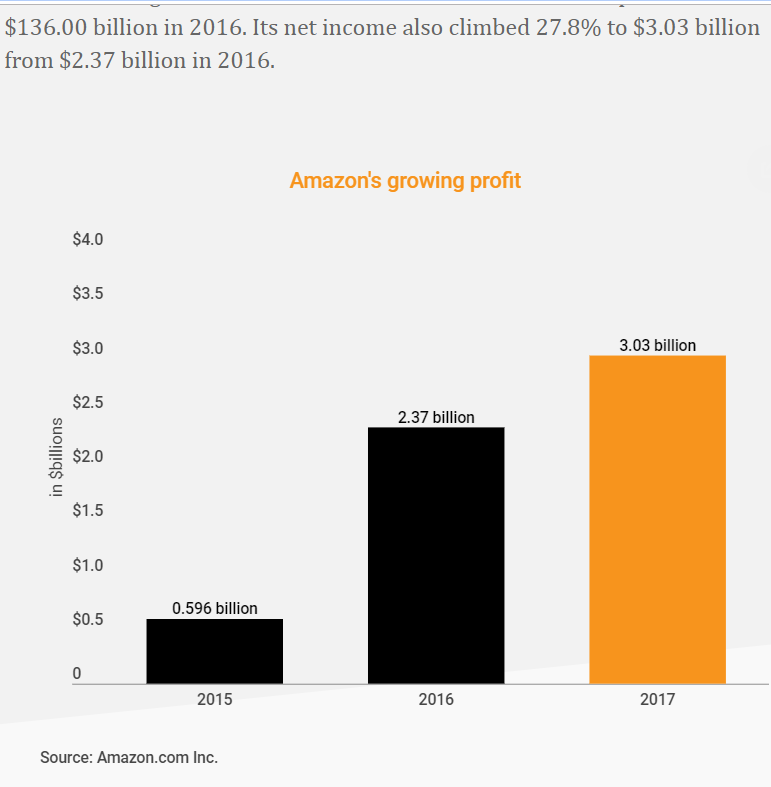
Image source: digitalcommerce360
Amazon growth surges amid pandemic from 20218 to 2020:
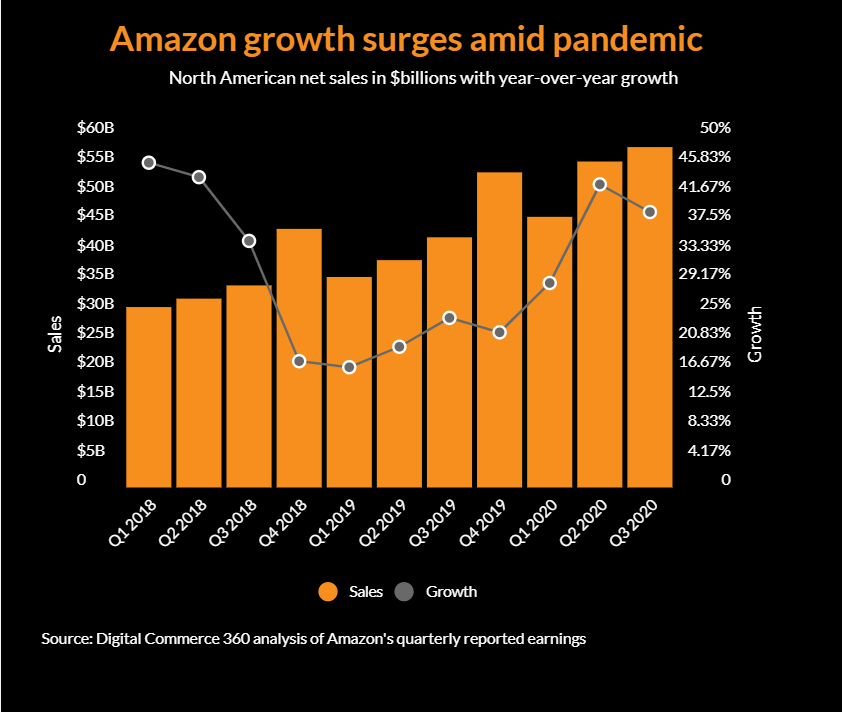
The Amazon success is driven by small and medium-sized businesses. They use this marketplace as a third party because of its powerful logistic capability.
Many online retailers enjoy selling on a two-sided marketplace because it is very profitable. Moreover, it simplifies the process of selling online.
Unlike developing an e-commerce website from scratch, creating the seller account does not take much time and investments.
Another benefit of online marketplaces lays in a high degree of trust by shoppers. The chart below shows that Amazon is the first place where U.S. shoppers search for products. Therefore, your potential customers are already there. For that, to make your first sale, it is not necessary to have a marketing budget.
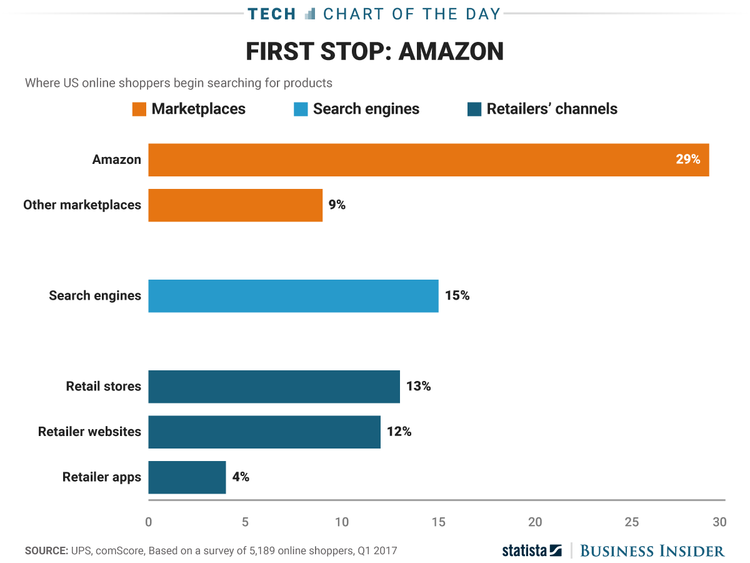
Image source: Statista
Online sources used by consumers worldwide to start searching for products as of March 2020
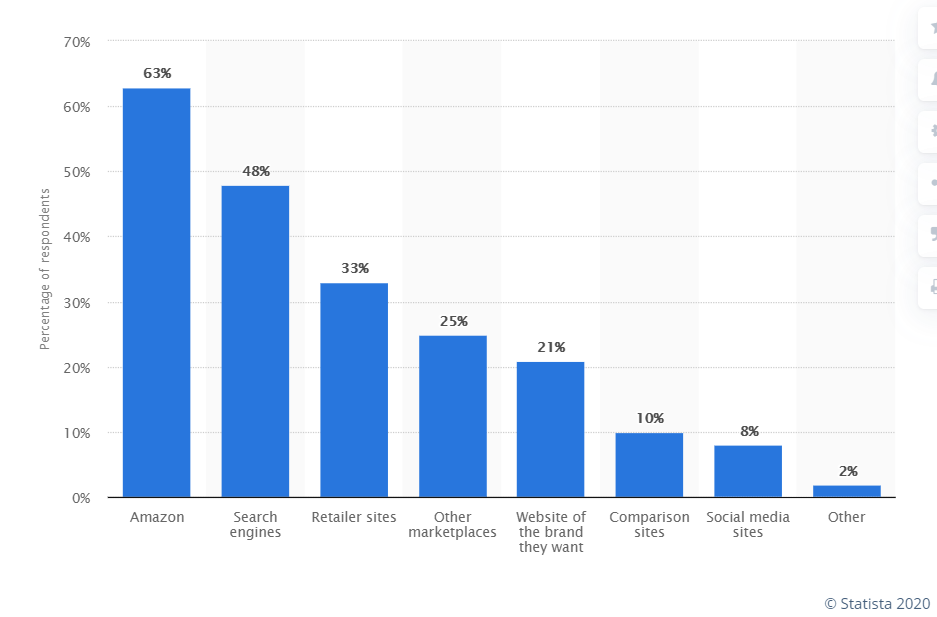
If you have no experience with web development, you can still easily add new items to the product catalog or change prices. Moreover, when trading in the marketplace, you do not need to worry about security issues and payment gateway.
Marketplace disadvantages
However, this easiest option has its drawbacks. The first one worth mentioning is a high level of competition. Imagine hundreds of other retailers who sell the same products. For that, it is hard to predict your conversions and achieve the expected profit level.
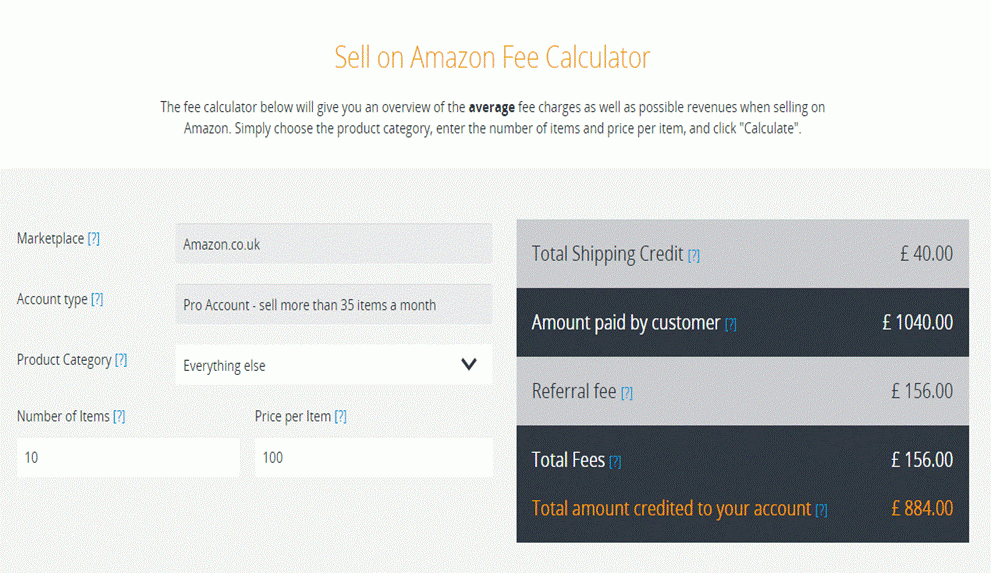
Image source: Search Engine People
Most marketplaces charge for product listing, so you will need to pay some fees even before making a single sale. Also, there is a commission for every transaction. The prices vary depending on which platform you choose.

Image source: Shopify
Another drawback for online retailers is that you cannot stand out from the crowd while establishing your brand. Online marketplaces have no or minimal space for seller profile’s personalization. So, while selling the same products, retailers compete for shoppers’ attention.
Even if shoppers purchased your item, it does not mean they will become your loyal customers. The main concern here is that shoppers focus their attention on products, not on the sellers. For that, it is impossible to develop your unique brand and build a loyal customer base.
Moreover, online marketplaces don’t let merchants communicate with shoppers. Because of this restriction, it is impossible to conduct marketing campaigns, inform customers about special offers or new stock arrivals. That way, you can rely only on new sales without taking advantages of past purchases.
Advantages of an e-commerce website for entrepreneurs
Owning a personal e-commerce website includes many benefits. Below we share reasons why online retailers should invest in the development of an online store.
The first benefit e-commerce website gives to your business is the total control over your business at every stage. You can even create custom selling scenarios.

Image source: Dinarys
Another benefit is that you have the freedom to personalize the online shop look and stand out from the crowd. You can use ready-made templates for your future online store or hire an e-commerce team to develop a custom design. It will allow you to provide customers with an exceptional experience on your website.
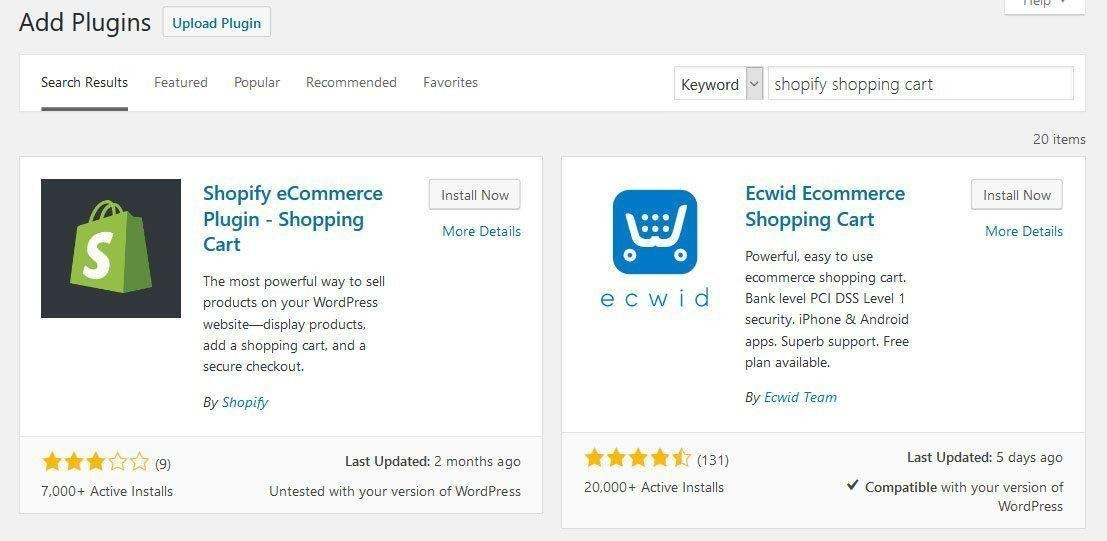
Image source: Torque
Owning an online store means you also control the feature list. Many e-commerce platforms allow integrating new features using modules and extensions. In case no ready-made solution could satisfy your business needs, you can hire an e-commerce agency to develop a custom module.
Another benefit of owning an e-commerce website is that you have direct access to your shoppers. You can provide better customer service and perform marketing activities.

Image source: Optimize Smart
We can also see the difference between these two sales channels in customer acquisition. When owning a personal e-commerce website, you can analyze customer behavior and perform relevant marketing activities including abandoned shopping cart recovery and other.
E-commerce website disadvantages
Only a few businesses can afford a custom e-commerce website development because it is costly. For that, small and medium companies use SaaS or open source platforms to create an e-commerce website. However, to develop an online store, you still need time and money. You also need to buy a domain name and pay for secure HTTPS certificate.
After the launch of the online store, there will be no visitors, because your future clients are unaware of your brand. To bring traffic to your e-commerce website, improve search engine ranking and make sales, you need a comprehensive marketing plan and marketing budget.
When your online shop is up and running, you need to provide shoppers with customer service. The reputation of your brand depends on how quickly you will react when something unexpected happens. It is a real struggle for small online businesses to provide the highest-level customer service. At the same time, marketplaces have customer support teams who fulfill buyer requests.
As you can see, both options have their distinct benefits and drawbacks. However, do not panic! We won't leave you behind without giving the solution and the light of hope. You can always apply the hybrid approach to sell more while developing your brand awareness and customer loyalty.
Creating an ecommerce website based on Magento
To give you an idea of a platform-based ecommerce solution, we’ll review Magento.
Magento is a software solution for online shops from California released in 2008. The shop system is used on countless websites around the world and is characterized, among other things, by its wide range of functions.
Magento is a powerful platform that can score with a number of advantages. This includes, for example, that a Magento shop can be scaled and expanded practically at will.
Read more: Why choose Magento for your ecommerce website
In addition, the Magento shop system impresses with extensive features for marketing and search engine optimization. There is also the option of setting up multi shops and launching your own shop in several languages. With the appropriate know-how, there are almost no limits to successful development using Magento, and online shop operators can fully rely on a future-proof software solution.
Despite all the advantages, one point that might put off many shop operators is certainly the costs associated with Magento.
There is a free basic version that is available in the form of an open-source solution. For the paid enterprise version of Magento, however, the price quickly exceeds 20,000 euros per year.
Let’s take a look at the cost of developing your own ecommerce website.
How much does it cost to develop a Magento store?
As we mentioned earlier, owning an e-commerce store is convenient because you can customize it according to your business’ scale and industry.
Here is more detailed information.
| |
Development
|
Graphic design
|
|
Simple Magento store
|
approx. 3,000 - 6,000 €
|
approx. 2,000 €
|
|
Medium complexity store
|
approx. 6,000 - 12,000 €
|
approx. 2,000 - 5,000 €
|
|
Store with individual extras
|
from 12,000 €
|
from 5,000 €
|
- A simple Magento store has no special extras and extensions. It is created from a standard template, which is graphically adapted and slightly revised.
- A store of medium complexity includes, for example, the individual creation of graphics and has features that make the set-up effort a little higher. (e.g. multilingualism, different shipping methods, nicer gift wrapping function, improved product search )
- The requirements of a Magento store with individual extras (e.g. an individual product configurator, an interface to the goods economy) must be considered in detail.
Of course, there are also projects whose development costs are well above this budget. In the enterprise sector, it is not uncommon for six-figure sums and more to be spent on setting up a Magento shop.
The Hybrid approach – marketplace integration with your e-commerce website
It is not necessary to pick just one approach. You can use both strategies - enjoy the benefits of selling on the marketplace and managing your respective e-commerce website. This way, you will receive traffic from large markets to your e-commerce website and increase conversions. The only thing to worry about is a workforce to maintain all of it because very quickly there will be much work.

Image source: Merchant Maverick
Marketplace integration allows online retailers to sell items on marketplaces and manage orders in their admin panel. This type of combination is prevalent among Shopify users. So, we have decided to make a small overview of the most popular Shopify plugins that might be useful for your multichannel strategy.
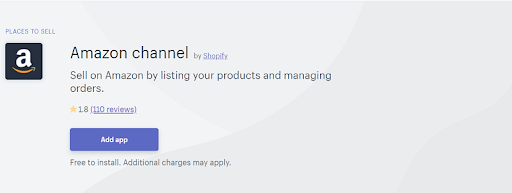
Amazon channel
Just imagine how many conversions this plugin can bring to your business. Amazon channel allows managing Amazon inventory and fulfilling orders from the Shopify dashboard. You can also list your Shopify products on Amazon and track your Amazon sales on Home sales overview and Analytic pages.

Codisto LINQ
With this powerful app, you will receive the opportunity to list your products, synchronize pricing and inventory on more than 40 global eBay and Amazon marketplaces directly from your Shopify admin panel. Unlike other multichannel selling tools, Codisto exports and migrates your entire product catalog directly to marketplaces. That is why we call it a time-saver.
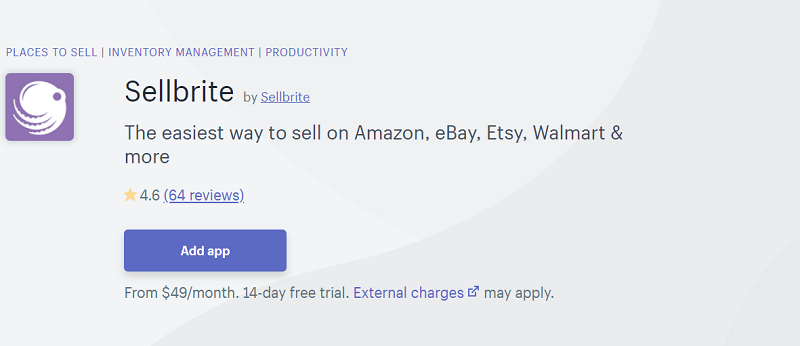
Sellbrite
If you want to sell products on multiple marketplaces, this is the right solution for you. This cloud-based channel management platform integrated with the most popular markets, including Etsy, eBay, Amazon, and Wal-Mart. You will receive centralized control over inventory and orders across all sales channels to drive sales.
Final thought
Both selling on the marketplaces and your online shop could be profitable. Still, both approaches have their advantages and drawbacks. Selling on marketplaces will not help you build your brand awareness and increase loyalty among customers. The development of an online store could be costly. Another struggle is to attract target traffic to the e-commerce website.
With new plug-ins, there is no need to decide where to sell. E-commerce integration allows listing products from your online shop to the most popular marketplaces. Being able to list these markets is an excellent solution for those, who want to receive a significant profit while developing your brand.
If you are looking for the e-commerce team for e-commerce marketplace integration, we are here to help. Give us the details of your project on the contact form, and we will contact you soon.




















